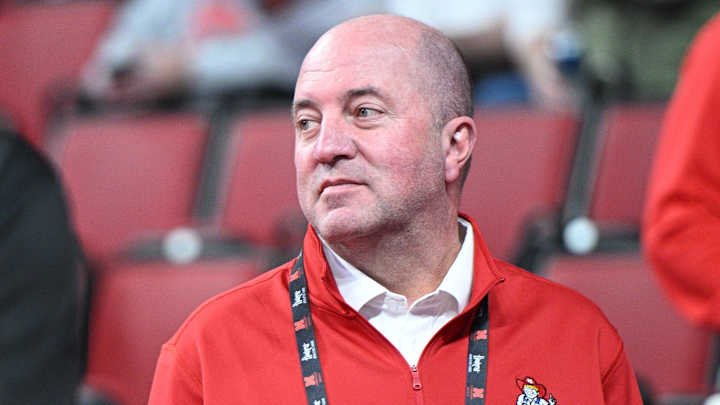Nebraska Athletes Might Start Getting Paid—And It’s About Time! because Nebraska set to pay student-athletes over $20 million next year in NIL contracts, Troy Dannen says
The murmurs began as a whisper, a tantalizing “what if” debated in hushed tones across sports bars and faculty lounges. Then, like a seismic tremor, it escalated. Now, the ground beneath Nebraska athletics is poised to crack wide open, not from a geological shift, but from an unprecedented financial upheaval that promises to rewrite the very rules of collegiate sports. Forget everything you thought you knew about amateurism, because the Cornhusker State is about to deliver a knockout blow to the antiquated notion of the “starving student-athlete.”
For decades, the spectacle has been the same: packed stadiums, roar of the crowd, millions in merchandising, and broadcast deals that beggar belief. And at the heart of it all? Young men and women, dedicating their lives, their bodies, their very futures to the pursuit of athletic glory for their institutions. They are the engine, the product, the dazzling display. Yet, as the financial titans of college sports amassed ever-greater fortunes, the athletes themselves remained tethered to the outdated strictures of “amateurism,” often struggling to make ends meet, while their likenesses adorned billboards and their jerseys flew off the shelves. The inequity was not just glaring; it was a grotesque injustice, a moral failing on a grand scale that simmered beneath the surface of every triumphant cheer and every heartbreaking loss.
But the winds of change, once a gentle breeze, have become a gale force. The Supreme Court’s Alston ruling was the first crack in the dam, a legal sledgehammer that shattered the NCAA’s iron grip on athlete compensation. Suddenly, the conversation shifted from “if” to “how.” And now, Nebraska, a state synonymous with fervent athletic devotion, is stepping onto the precipice, ready to take the leap into a new era.
Imagine: A star quarterback, not just celebrated for his arm, but compensated for the millions he generates in ticket sales and endorsements. A phenomenal gymnast, her graceful performances not just earning her accolades, but a tangible stake in the university’s burgeoning brand. This isn’t charity; it’s capitalism finally catching up to a reality that has been ignored for far too long. These athletes aren’t just students who happen to play a sport; for many, they are the very reason the university’s athletic department is a multi-million dollar enterprise. Their talent is the fuel, their dedication the spark. And for too long, they’ve been expected to run on fumes.
The implications are staggering. Will this create a “free agency” within college sports, where athletes flock to the highest bidder, transforming loyalty into a relic of the past? Will smaller programs, unable to compete financially, be relegated to the dustbin of athletic history? Or, conversely, will it unleash a new wave of innovation, fostering greater equity and allowing athletes to truly benefit from their immense contributions, perhaps even enabling them to pursue academic paths previously unimaginable due to time and financial constraints?
The suspense is palpable. Legislative chambers in Lincoln are abuzz, legal minds are poring over precedents, and athletic directors are scrambling to adapt. The debates are fierce, the stakes astronomical. Will Nebraska be the trailblazer, igniting a nationwide revolution that finally redefines the relationship between athlete and institution? Or will the old guard find a way to cling to their fading power, delaying the inevitable?
- One thing is certain: the era of the unpaid athletic titan is drawing to a dramatic close. Nebraska stands at a crossroads, poised to either lead the charge into a more equitable, more just future for collegiate athletes, or to be swept along by the relentless tide of change. The world is watching, captivated by this unfolding drama, waiting to see if the Cornhusker State will indeed unleash the financial revolution that has been simmering for far too long. This isn’t just a story about athletes getting paid; it’s a story about power, justice, and the inevitable evolution of an empire. And you, dear reader, are about to witness history in the making. Don’t blink.

